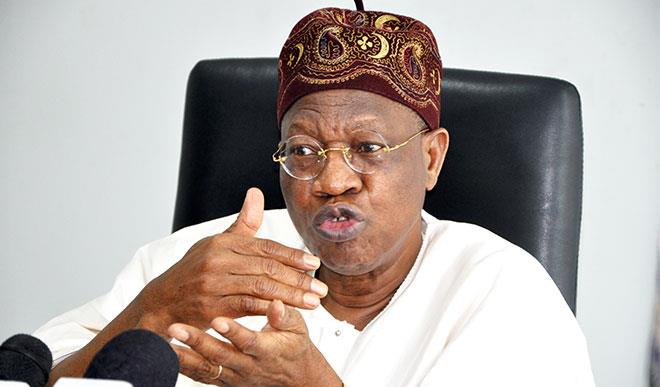The Federal Government on Monday said the nation’s economy in the outgoing year 2019 witnessed a strong performance, building on the steady recovery since the last recession.
The Minister of Information and Culture, Alhaji Lai Mohammed disclosed this at a media briefing in Lagos while reeling out the major achievements of President Muhammadu Buhari’s administration for the outgoing year.
“In 2019, the Nigerian economy grew at an average rate of 2.2 per cent over the first three quarters, compared to 1.7 per cent over the same period in 2018.
“Both the oil and non-oil sectors performed considerably better in 2019 than in 2018.
“The oil sector grew at an average of four per cent over the three quarters, compared to 2.4 per cent in 2018, while the non-oil sector grew by two per cent, compared to 1.7 per cent in 2018,’’ he said.
Mohammed said the average daily oil production level rose to its highest in the last three years, reaching two million barrels per day (mbpd) in 2019, compared to 1.8 mbpd in 2016, and 1.9 mbpd in both 2017 and 2018.
READ ALSO: http://N37bn NASS Renovation: Lawmaker wants fund utilised for education reform
He said in particular in the third quarter of 2019, the major growth drivers were: Information and communications, agriculture, mining and quarrying, transportation and storage as well as manufacturing.
The minister noted that the major growth drivers all had seen considerable focus by the government.
He said in the third quarter of 2019, a total of 34 economic activities witnessed positive expansion, same as in 2018.
On inflation rate, the minister said the trends indicated that overall macroeconomic stability was being achieved, with inflation rate steadily trending downwards.
“Year-on-year headline inflation rate declined steadily from 15.1 per cent in January 2018 to 11.9 per cent in November 2019.
“Year-on-year core inflation rate slowed from 12.1 per cent to nine per cent between January 2018 and November this year.
He said that year-on-year food inflation rate decreased from 18.9 per cent in January 2018 to 14.5 per cent in November 2019.
Mohammed said for the first time since 1999, the Executive, in collaboration with the National Assembly succeeded in introducing the 12-month (January to December) budget cycle.
He described the development as important and major, considering the damage that delayed passage of budgets had done to the economy over the years.
The minister assured that with the new cycle, there would be a more rapid infrastructure development as well as more job creation. (NAN)


